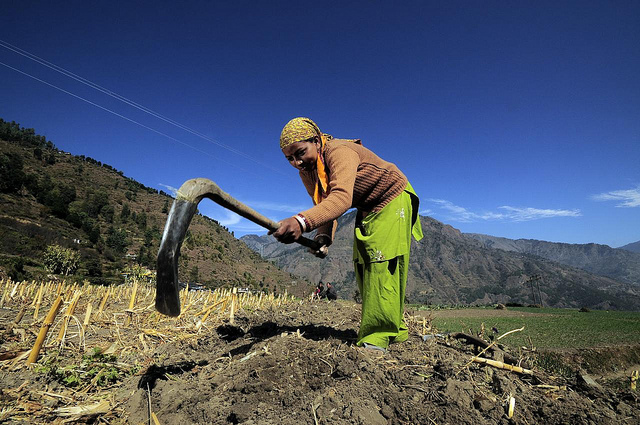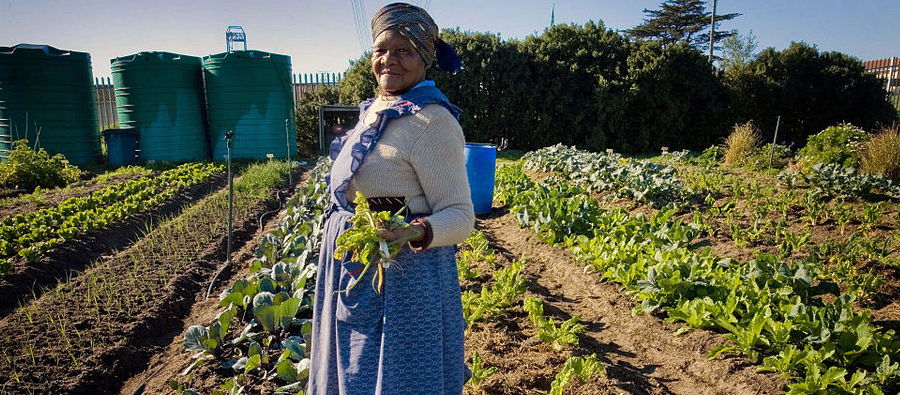After years of incremental progress in the fight against poverty and malnutrition, eradicating hunger is now within our grasp. The world is changing, and we face growing challenges and new risks—but we’ve also never been as well prepared to meet these challenges. Ending hunger will require action, engagement, commitment, and collaboration from all sectors, across generations, and from every corner of the world.
At the Chicago Council on Global Affairs’ Global Food Security Symposium in Washington, DC on March 29 and 30, top visionaries from every sector will gather to generate the productive dialogue and actions necessary to ensure strides in global food security and agricultural development. At the event, the Council will release its new report, Stability in the 21st Century: Global Food Security for Peace and Prosperity, which outlines the progress that’s been made to advance food and nutrition security, emerging challenges, and strategies for engagement by national governments, the private sector, and the United States.
The progress is clear: since 1990 global hunger and extreme poverty have fallen significantly, and agricultural production has, on average, doubled. The world is less poor, less hungry, and healthier than it was just a few decades ago.
Advancing food security promotes national security interests, as hunger and unstable food prices can spur unrest and instability, sometimes with widespread ramifications. Investments in agricultural development and food security can transform economies, building new markets locally, nationally, regionally, and globally.

We are better equipped than ever to end hunger (Photo: FMSC Distribution Partner – Haiti)
But challenges remain, and new risks are emerging—which we must be prepared to meet. Even with the gains we’ve made, nearly 800 million people are still chronically hungry, and over 700 million live in extreme poverty. Gains in agricultural production have occurred unevenly—in fact, some countries have seen their productivity decline in recent years. Increasingly urban populations and the growing demographic youth bulge put new pressures on global food systems, and volatile weather patterns and natural resource pressures will test our ability to meet growing demand for food safely and sustainably.
Meeting these challenges means we must fully leverage research and development in order to respond, whether on the farm or throughout the supply chain. The expertise and knowledge from national and global research institutions, from universities to the CGIAR system, must reach and equip producers within low-income countries’ agricultural systems. The power of the private sector must also be unleashed to meet these challenges, as new platforms for cross-sectoral collaboration bring its strengths to the forefront of the fight against hunger. Innovations in investment and finance have the potential to unlock impact and finance at scale—and they must, as the world’s farmers face an estimated $200 billion gap in unmet financing. Strong leadership by policymakers will also be essential, including those in donor countries, like the United Kingdom’s Department for International Development (DFID) and the United States Agency for International Development (USAID), as well as in rising global powers and within low-income countries.

A farmer at work near Bejling village, Himachal Pradesh, India (Photo: Neil Palmer/CIAT)
Importantly, these efforts will require the commitment, innovation, and expertise of the next generation of leaders, who will drive progress forward. As youth populations continue to grow rapidly in emerging economies, they can make tremendous contributions to development, including in agriculture and the broader food system.
The Council’s Symposium will highlight the voices and expertise of this next generation of leaders in agriculture, food security, and nutrition. 20 exceptional students from Australia, Brazil, Canada, Honduras, India, Nigeria, Tanzania, Thailand, Uganda, and the United States comprise the Global Food Security Symposium 2017 Next Generation Delegation. Students from around the world will also join us digitally as Social Media Ambassadors, promoting engagement online and bringing their voices to the digital discussion surrounding the event.
I hope that you will add your voice to this important discussion. Watch for the release of the new report, Stability in the 21st Century, on March 30. And, tune into the symposium livestream on March 29 and 30 and share your questions and observations for panelists via Twitter, using #GlobalAg.
The continued existence of hunger and malnutrition defies logic in an age of progress and modernity. We need everyone at the table to solve problems and innovate—across geographies, generations, and disciplines—so please do your part to shape the dialogue by joining the conversation on this critical issue. Together, we can end hunger, once and for all.




